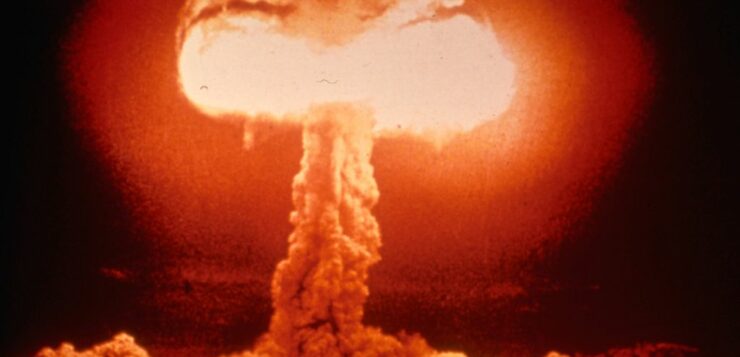The UN Treaty on the Prohibition of Nuclear Weapons (TPNW) entered into force on the 22nd January. This means that for all state parties of this Treaty the development, testing, production, manufacturing, otherwise acquiring, possessing or stockpiling nuclear weapons or other nuclear explosive devises becomes illegal under international law.
More than ninety percent of the world’s nuclear weapons belong to the United States and the Russian Federation, although neither are signatories to this new treaty, nor are the UK or France, two other prominent nuclear powers. Parties include South Africa and New Zealand, and signatory States include Columbia, The Democratic Republic of the Congo, and Libya. The difference being that State Parties are legally bound by this treaty, and signatory States must honour its purpose and may still pursue being a State Party. There are currently eighty-six signatory States and fifty-two State Parties.
The targets of nuclear weapons are most often cities and according to the ICAN Cities appeal many are taking a stand against their national government in order to encourage the disarmament of nuclear weapons. Cites on the ICAN Cities list pushing their governments to join the TPNW include Washington D.C. and Paris.
TPNW intends to build a stigma around the use of nuclear weapons, as was the case with cluster munitions and landmines when these were prohibited. There is a possibility that this treaty will ignite further progress as many countries are now standing together to resist the acquiring of nuclear weapons.
The rhetoric that states want rid of nuclear weapons and are actively trying to disarm the world will be felt beyond those who are signatories as investment in key components of nuclear weapons may now be deemed to be violating international law. Although the treaty does not explicitly mention funding, it does forbid assisting anyone engaging in nuclear weapon development and manufacturing in Article 1. This will cause many businesses to divest from firms that develop nuclear weapons. Biological and chemical weapons have already been prohibited and there are now only limited firms that will choose to invest in these weapons; this may well be the same for nuclear weapons. Already, several financial institutions have implemented policies which disallow interaction with companies that produce nuclear weapons, such as Zevin Asset Management based in the United States.
The Treaty acts as a reminder for the dangers of nuclear weapons. These risks are not limited to intentional use, for as long as nuclear weapons exist there will always be the chance of accidental detonation, misfire or malfunction. According to the authors of TPNW these weapons are a weak link in global security and all states must take action and share responsibility.
The TPNW recognises the necessity of including both men and women in the nuclear disarmament process, a nod to UNSCR 1325 and its more recent iterations which highlight that for peace to be sustainable it must involve the meaningful participation of women. Elsewhere in the Treaty is an acknowledgement of the disproportionate impact that detonation would have not only on women and girls, but also on indigenous peoples. This may be due to a number of factors including a reduction in the stability of the economy and food shortages due to the impact of a nuclear blast. Those already disadvantaged by socioeconomic norms will be disproportionately impacted by such an explosion.
There is still much uncertainty as to whether this Treaty will hold the influence that is needed, and speed up the slow disarmament process that has been background noise since the Non-proliferation Treaty (NPT) of 1968. Even with this treaty, a State Party has the right to withdraw if it at any point it violates the ‘supreme interests of its country’ potentially reducing its ability to be enforced. We are yet to see the full effects of this long awaited treaty, but there may be less of a reliance on nuclear deterrence as a security strategy in the future.




